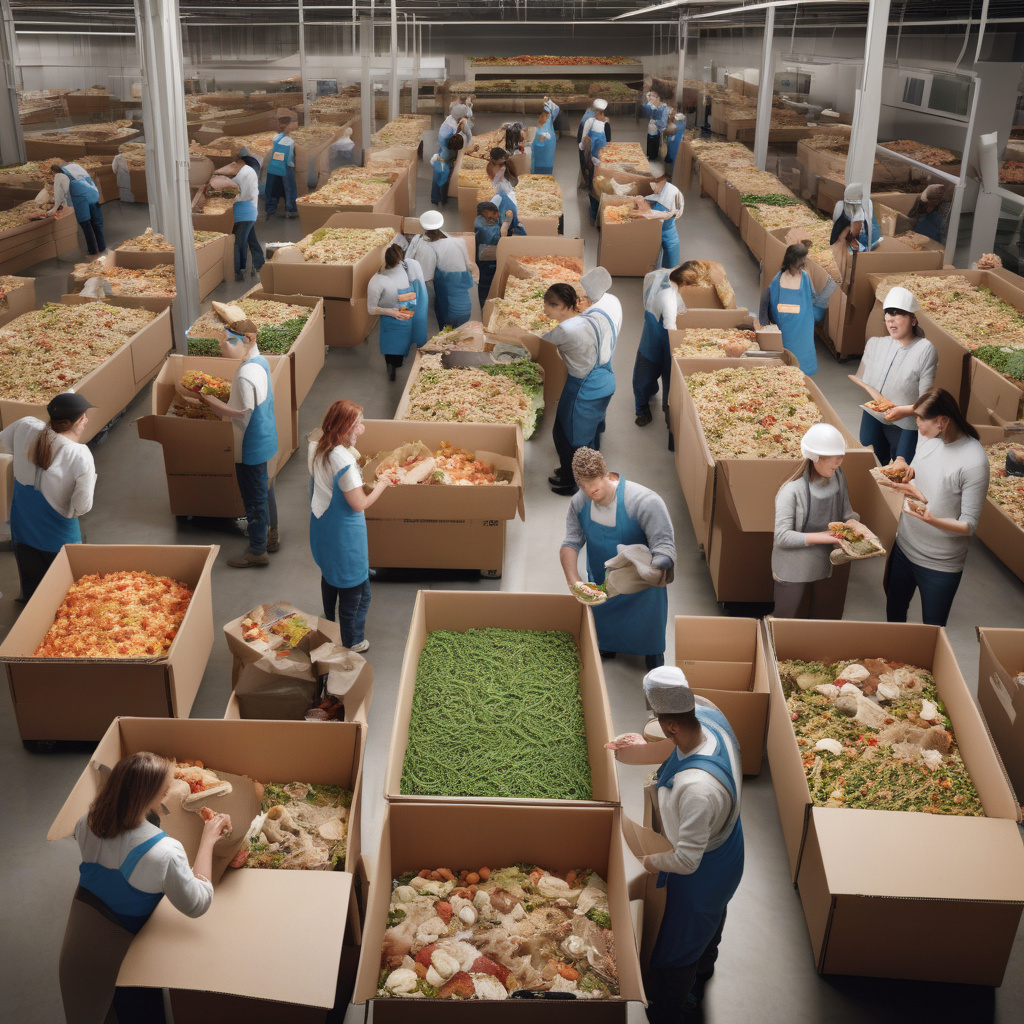AI-Powered Project by Sustainable Ventures Set to Deliver 1.5 Million Meals
Sustainable Ventures, a leading organization in promoting sustainable initiatives, has recently embarked on an innovative project that harnesses the power of artificial intelligence to address food waste and hunger simultaneously. This groundbreaking project aims to connect food producers, logistics companies, and charities in a seamless ecosystem that ensures surplus food reaches those in need. By leveraging AI technology, the project seeks to optimize the process of food distribution, ultimately delivering an impressive 1.5 million meals to individuals facing food insecurity.
The intersection of AI and food waste management is a prime example of how technology can be harnessed for the greater good. By utilizing data-driven insights and predictive analytics, the project can identify surplus food at various stages of the supply chain and efficiently redirect it to charitable organizations. This not only minimizes waste but also ensures that edible food does not end up in landfills, where it would contribute to environmental degradation.
One of the key components of this AI-driven project is its ability to streamline communication and coordination between food producers, logistics providers, and charities. By creating a digital platform that facilitates real-time information sharing and logistics planning, the project can significantly reduce the barriers that often hinder food donation efforts. This seamless integration of stakeholders not only increases the efficiency of food distribution but also fosters collaboration and synergy among participants.
Moreover, the use of AI enables the project to forecast demand and consumption patterns accurately, allowing for proactive rather than reactive measures in addressing food insecurity. By analyzing vast amounts of data, such as seasonal variations in food production and consumption habits, the AI system can optimize the allocation of surplus food to meet the specific needs of different communities. This targeted approach not only maximizes the impact of food donations but also ensures that resources are utilized effectively.
In addition to its immediate benefits in providing meals to those in need, the AI-powered project by Sustainable Ventures has the potential to drive long-term systemic change in the way society approaches food waste and hunger. By demonstrating the effectiveness of technology in addressing complex social issues, the project sets a precedent for future innovation in the field of sustainable food management. As more organizations and stakeholders witness the positive outcomes of this initiative, there is a growing opportunity for scaling up similar AI-driven solutions to tackle food insecurity on a larger scale.
In conclusion, the AI-powered project led by Sustainable Ventures represents a significant step forward in leveraging technology to combat food waste and hunger. By harnessing the capabilities of artificial intelligence to optimize food distribution processes and facilitate collaboration among stakeholders, the project stands to deliver 1.5 million meals to those in need. Beyond its immediate impact, this initiative paves the way for a more sustainable and efficient approach to food management, highlighting the transformative potential of technology in addressing pressing social challenges.
food waste, artificial intelligence, sustainable initiatives, food insecurity, technology-driven solutions
